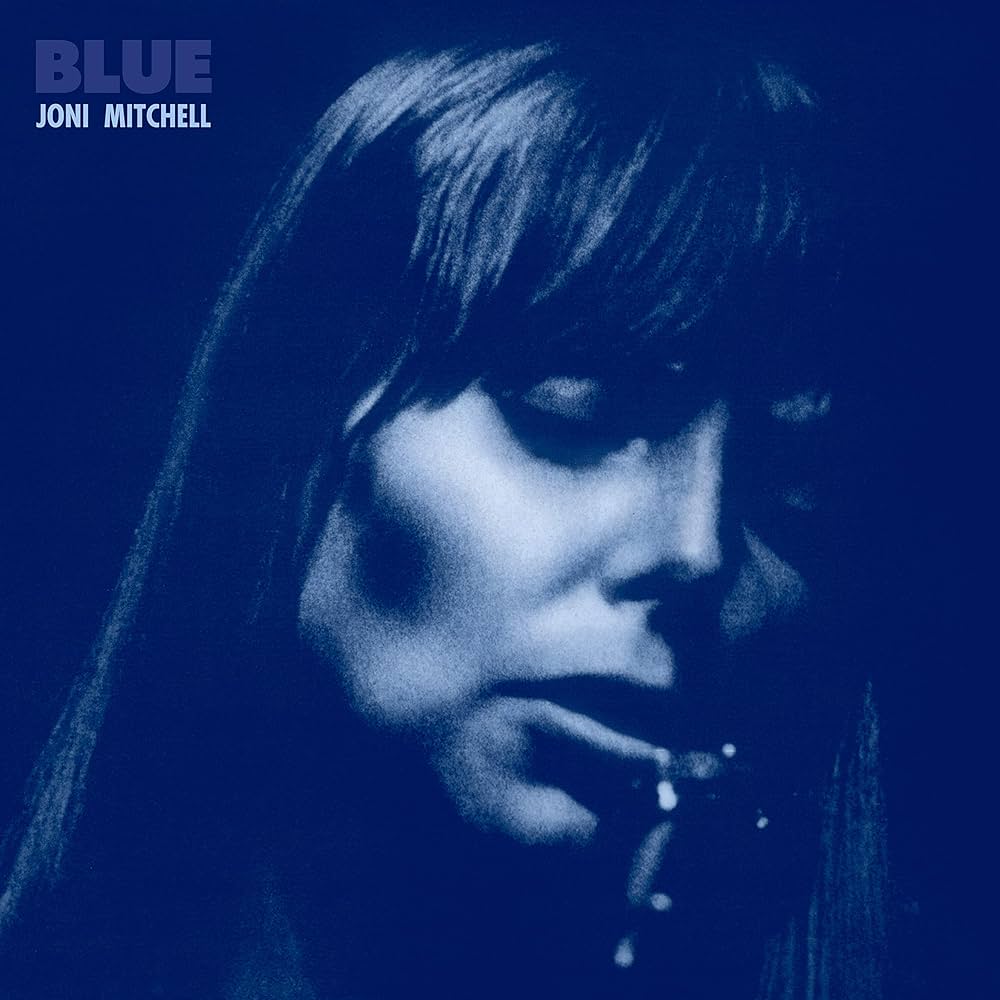Artist: Joni Mitchell
Album: Blue
The heartbreak of partnership, the shackles of freedom, and the intelligence of love all come together within Joni Mitchell’s self-produced album, Blue. When Blue released in 1971, nobody did it like Mitchell. She showcased the strength of emotion from a woman’s perspective. No woman before had the guts to perform such truthful and vulnerable material. Inspired by first person lyricists like Bob Dylan, she paved her own road in the history of folk music. Mitchell wrote what she wanted, communicated her emotions through the nakedness of the album.
She opens the album with “All I Want,” a poetic song about the conflicts that come with wanting to be her own person, along with her struggles navigating the push and pull of being in a dedicated relationship without losing herself to it. “All I really really want our love to do, is to bring out the best in me and in you,” Mitchell repeats, trying to validate her feelings of confinement within the love she has.
She follows this with “My Old Man,” a story about how lonely it gets when the person you love is away and the euphoria of their return. Right off the bat, Mitchell lays down the tone of the album: the unmistakable conflict between life and love, a conflict that many women face throughout their lives.
The third track on the album reveals a surprising amount about Mitchell. It discusses Mitchell’s daughter that she had to give up for adoption at the age of 20 – the father left for California, and Mitchell could not care for the child on her own. “Child with a child pretending, weary of the lies you are sending home, so you sign all the papers in the family name,” are lyrics unavoidably about hiding this child and giving her away. No one else at this time, especially no woman, showed so much of themselves in their music.
Mitchell follows “Little Green” with a more upbeat period piece about falling in love in a foreign place. This showcases the playfulness of love, after the heartbreaking songs that preceded it. But this upbeat jaunt is quickly brought down by the eponymous song: “Blue.” Littered with metaphors and realities (“acid, booze, and ass; needles, guns, and grass”) this song provides a bleak look at the state of the world in the late 60s and early 70s, a world which Mitchell wishes to escape. The theme of escaping comes up again two songs later in “River,” the eighth song on the album and one of Mitchell’s most famous tracks, notable for its use in Love Actually and its reputation as a Christmas song.
“Blue” trails off into silence when interrupted by a simple acoustic guitar that opens “California,” a familiar song about the importance of the counterculture movement in California in the 70s, and the home one can build within a community. “Will you take me as I am?” she asks in her lyrics, and never do we hear an answer. She spends this album begging for love and longing for freedom and missing her community.
“A Case of You,” the ninth song on Blue, is Mitchell’s ode to a love that she cannot escape from. Her imagery in the lyrics “you are in my blood like Holy Wine” emphasized the ever-connectedness one feels with a lost love. She has to go on living without him, but she feels forever affected by his presence in her life. “Part of you pours out of me,” Mitchell sings as she realizes that she will forever carry a small piece of him with her.
Closing with “The Last Time I Saw Richard,” this 36-minute album only houses 10 songs, but its impact on folk music and pop culture could never be erased. Much like the relationships Mitchell sings about in Blue, this album has left an indelible impact on many. Joni Mitchell’s poignant and transparent compositions in this album mark it as an iconic cornerstone of introspective music.


Leave a Reply